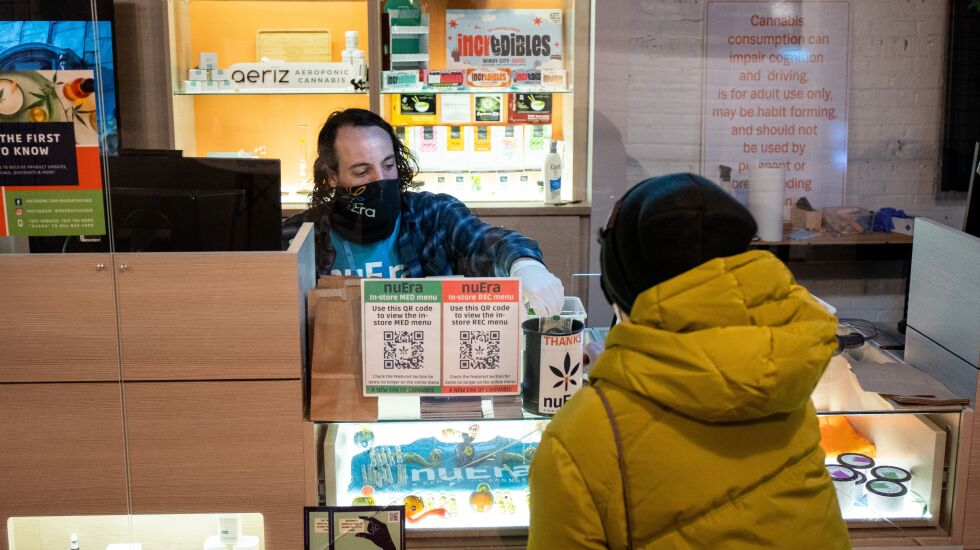
We all know the challenges that new businesses — especially new small businesses — face in getting off the ground, but cannabis businesses are facing an unprecedented hurdle that Springfield should tackle immediately.
IRS Code Section 280e prohibits cannabis businesses from deducting normal expenses, like rent, utilities and payroll. As a result, these companies — particularly those run by minority business owners who have received social equity licenses — are at a severe disadvantage. These companies pay taxes on gross profit, which can be more than double their net income. Cannabis businesses that can’t deduct these expenses are unable to funnel that money back into growing their company, creating more jobs and contributing to the economy.
SEND LETTERS TO: letters@suntimes.com. We want to hear from our readers. To be considered for publication, letters must include your full name, your neighborhood or hometown and a phone number for verification purposes. Letters should be a maximum of approximately 350 words.
There’s general agreement that Illinois should decouple itself from 280e and legislation to do just that has been introduced in the spring session of the Illinois General Assembly, sponsored by Sen. Elgie Sims. But this has been a clear problem since recreational cannabis was legalized in Illinois and businesses began operating. So why hasn’t it been addressed?
I can give you 17 reasons.
There are a whopping 17 independent bureaucratic agencies in Illinois tasked with some level of oversight into the state’s cannabis industry. Seventeen different state agencies can’t possibly manage, evaluate and improve Illinois’ cannabis industry.
That’s why the Cannabis Business Association of Illinois is also pushing for creation of a Cannabis Control Commission, a single regulatory oversight agency that merges the existing 17 agencies. This isn’t new: The proposal is modeled after existing successful operations in Nevada, Maryland and Massachusetts. It’s also how Illinois’ liquor and gaming industries already operate.
By combining oversight into a single commission, we will be able to move quicker on reforms that make it easier to enter the cannabis industry, grow a successful business, contribute to the state’s economy and ensure consumer safety and protection.
A single commission can help move forward common-sense proposals like permanently allowing curbside pick-up of cannabis, which gives customers — especially medical cannabis patients — safe and convenient pick-up options; and medical cannabis card reciprocity, which allows patients with a valid medical card issued by a different state to purchase, use and possess cannabis here in Illinois.
As the economy continues to rebound, Illinois should be encouraging robust business growth across the state. The cannabis industry, in particular, has been a tremendous source of tax revenue since it began operating in earnest in 2020, earning the state more than $435 million.
Let’s remember that cannabis in Illinois is still in the early stages — three years just isn’t that long. Now is the time to make these important, common-sense changes that will set up the industry and its members for success well into the future.
Pamela Althoff, executive director, Cannabis Business Association of Illinois
Disrespectful election discourse
Billionaire Ken Griffin, who supports mayoral candidate Paul Vallas by way of his spokesperson, called Brandon Johnson “…a fool.” His rhetoric demeans this contest and defames the character of Johnson.
Griffin no longer lives in Illinois, but has the audacity to attack Johnson’s character by proxy, hiding behind his spokesperson. Vallas should take high moral ground and denounce this offensive and contemptible attack. Doing nothing sends a message of profound disrespect to civil electoral discourse and Illinois voters.
Deborah Harrington, Chicago







